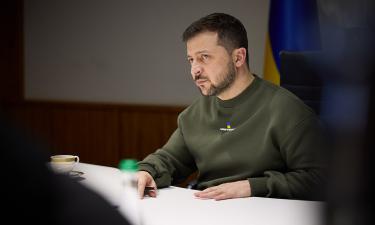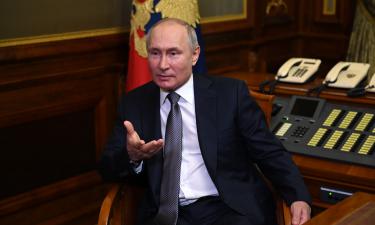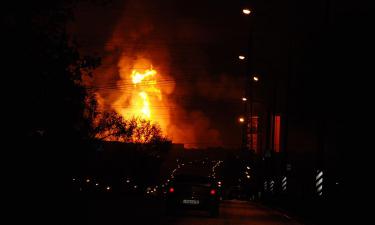Bush doesn't believe Putin
U.S. President George W. Bush said that Vladimir Putin would not dare to re-target missiles on Europe and that "Russia is not going to attack Europe."
Bush, in an interview with The Associated Press and other reporters, said that no U.S. military response was required after Putin warned that Russia would take steps in response to plans to deploy a U.S. missile shield in Poland and the Czech Republic.
"Russia is not an enemy," Bush said, sitting in a sun-drenched garden in the resort town hosting the Group of Eight summit Wednesday. "There needs to be no military response because we're not at war with Russia. Russia is not a threat."
Bush and Putin will meet later Wednesday at the opening of the summit of industrialized nations. Asked if he anticipated a tense encounter, Bush replied: "Could be. I don't think so ... I'll work to see that it's not a tense meeting."
Putin had rattled nerves in Europe with his weekend declaration that he would retarget missiles on Europe in response to the missile defense shield. "I don't think Vladimir Putin intends to attack Europe," Bush said.
Bush talked with reporters for nearly an hour, touching on subjects from global warming to Iran, the suffering in Darfur to the war in Iraq. The president said he would like to see other countries follow the United States in taking steps against the government of Sudan to stop the misery in Darfur.
"I'm frustrated because there are still people suffering and the U.N. process is moving at a snail's pace," Bush said.
Bush is seeking a U.N. resolution to apply new international sanctions against the Sudanese government. It would include an expanded embargo on arms sales to Sudan, prohibit Sudan's government from conducting offensive military flights over Darfur and strengthen the U.S. ability to monitor and report any violations.
On climate change, Bush said he would not give ground on global warming proposals that would require mandatory caps on greenhouse gas emissions. Instead, he backed his own proposal to have the United States and other nations that spew the most greenhouse gases meet and - by the end of next year - set a long-term strategy for reducing emissions.
Bush's plan addresses "life after" 2012, the expiration date for the Kyoto Protocol, which the United States didn't sign.
Bush wants to bring India, China and other fast-growing countries to the negotiation table. He envisions that each country will set goals on how they want to improve energy security, reduce air pollution and cut greenhouse gases in the next 10 to 20 years.
"The United States can serve as a bridge to help find a solution," Bush said.
He said that the G-8 summit, running Wednesday through Friday, would produce a consensus for a post-Kyoto framework after the landmark treaty expires in 2012.
Subscribe to Pravda.Ru Telegram channel, Facebook, RSS!





